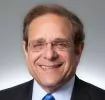Making massive waves throughout the collegiate and legal communities, the Chicago Regional Director of the National Labor Relations Board ("Board") determined Wednesday that scholarship – but not walk-on – football players of Northwestern University are employees under the National Labor Relations Act ("NLRA"). As a consequence, college football players at the university may, at least for now, vote whether they wish to be represented by a union and collectively bargain over the terms and conditions of their association with Northwestern. The determination that scholarship athletes are actually employees of their schools has potentially far-reaching consequences.
In reaching the decision, the Chicago Regional Director placed significant emphasis on the revenue the football program generates for the university, the amount of time the students spent on football and related activities, and the level of control the coaching staff exercised over the students' lives. Northwestern has already stated that it will fight the decision and, accordingly, has requested the decision be reviewed by the Board, which we expect will likely affirm. As a result, any recourse for the school in federal court will not likely come until after an election takes place, the union is certified, and collective bargaining is mandated. Ultimate resolution of this novel case is well down the road and could lead to a decision by the United States Supreme Court.
While the ultimate resolution remains at this point remote, the decision creates a number of immediate legal issues for colleges and universities to consider. Although the NLRA only applies to the private sector, and the potential precedential effect of the Northwestern matter thus technically affects only private universities, many states have similar laws governing public sector employees and public entities – such as state universities. The state agencies that administer those public laws routinely follow precedent under the NLRA, particularly when existing state law offers little helpful guidance. As a consequence, public sector colleges and universities can likely expect to face similar issues in the near future as a consequence of the Northwestern ruling.
Additionally, the rationale of the decision – that scholarship athletes are employees – creates numerous immediate liability concerns for any university with scholarship athletes, as it is conceivable that players, government agencies, or others might seek to extend the "employee" definition to other legal contexts. For example:
- Scholarships could become taxable income to the students, imposing upon the university "employer" the obligation to both pay employment taxes and withhold the "employee's" portion of the taxes owed.
- If scholarship athletes are in fact "employees":
- They must be paid minimum wage and overtime for all hours devoted to their employment. This could include mandatory study halls, weight training and any time the student was restricted to campus, dorm or hotel. This could create huge potential liability under federal and state law.
- OSHA and workers compensation liability will attach to injuries – an enormous consequence in the context of a football program. Additionally, many states assess criminal penalties for failure to have workers' compensation for "employees."
- Anti-discrimination laws will apply. Sexual segregation in university athletics could be challenged. Disabled individuals could demand reasonable accommodations.
- Unemployment compensation obligations may apply. Student athletes may be entitled to compensation if their association either with their athletic team or the university ends through no willful fault of their own.
- The rules of conduct which most teams apply to student athletes would likely be unfair labor practices under the NLRA, as they would interfere with protected concerted activity, regardless of whether a union is present.
Any one of the above legal issues is immediately implicated by the status of scholarship athletes as employees and not students. Plainly, if the Regional Director's decision ultimately holds, it could have significant, far-ranging, and hard-to-predict consequences for universities and their sports programs. Sports fans, universities, and legal observers throughout the country will thus be playing close attention not only to the story at Northwestern as it continues to unfold, but will be looking to see if other union dominos fall at other schools across the country and whether the determination that student-athletes are employees will be pressed hard in other employment law contexts.
The content of this article is intended to provide a general guide to the subject matter. Specialist advice should be sought about your specific circumstances.


